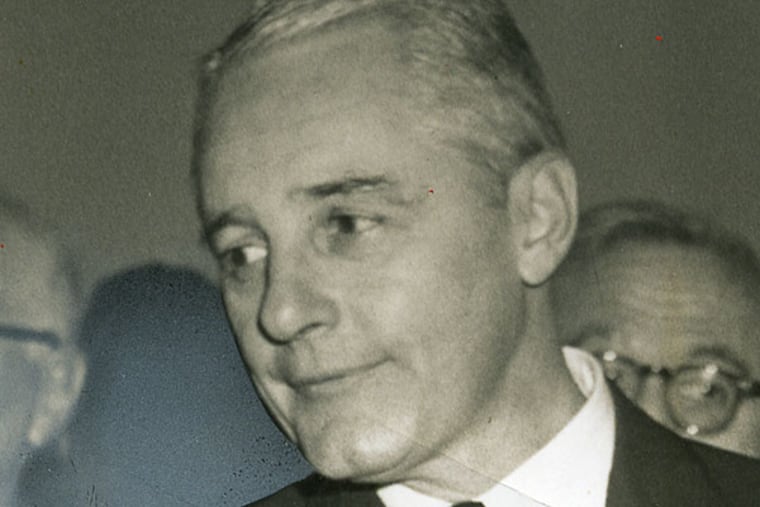Promise, hope in city schools
In my 10th decade, I don't get around much anymore, not without a cane. But I remain deeply interested in public education.

In my 10th decade, I don't get around much anymore, not without a cane. But I remain deeply interested in public education.
I got to know Philadelphia's public schools up close and personal half a century ago when I covered the schools as a reporter for the Evening Bulletin. It was in 1967 that a thought occurred.
"You have criticized the city's teachers in the paper for not doing a better job. Why not show them how it should be done?"
At the time, it seemed like a fine idea.
I persuaded Philadelphia's superintendent of schools, Mark R. Shedd, to sign me up as a substitute teacher. My plan was to teach for half a year at a predominantly white elementary school and half in a predominantly black school. Then I would describe my experience in a book. I even had a publisher, Random House.
Beforehand, I taped on the blackboard of my classroom a collage of faces clipped from magazines . . . black, brown, and white faces of children and grown-ups at work and play. From Avis Rent A Car, I was given hundreds of "We Try Harder" buttons to inspire the pupils. That was all well and good. But then came the time for me to start teaching.
I found myself in front of a fourth-grade class at a school in Kensington. I asked my 37 pupils to listen to my pearls of wisdom. They appeared to be laughing in my face. I vainly implored them to hear me out. I pleaded with them to shut up. They weren't listening. I never got them to listen. They must have known I was a phony.
In less than a week, I fled in disorder. The Kensington kids wiped me out. (Random House later published my book, Whitetown USA, but it told a story far different from what I had intended.)
What I learned from that humiliating experience was that teaching in a big, troubled city school is no picnic for novices. But that was 48 years ago. With public education in an even more parlous state today, I recently stepped foot in another Philadelphia public school, not to teach but to help with children of kindergarten age.
The school was Edward Heston Elementary at 1621 N. 59th St. in Philadelphia's West Parkside section. It was erected in 1899, a sturdy building that showed its age. Although decorations at the entrance made the school more inviting, the building itself resembles a prison.
From a guide published by the Philadelphia School Partnership, I learned that Heston's enrollment is 97 percent black. I found that 99 percent of the pupils qualified for free or reduced-price lunch. None of them is listed as "gifted."
By middle-class standards, these children would be considered "poor." Did they look it? Not to me. They were full of energy but not of mischief. Their clothing was spotless and their smiles infectious.
In my visit to Heston, I accompanied Deborah Bishop, a friend in our old folks' home, Beaumont in Bryn Mawr. Her interest in public education came from her father, Richardson Dilworth, the former mayor who had been president of Philadelphia's Board of Education from 1965 to 1971. In my opinion, he was the best school board president Philadelphia has ever had.
Bishop and I went to the office and met Heston's principal, Angela Gaddie-Edwards. A graduate of Girls High and Temple University, Gaddie-Edwards earned a master's degree from Arcadia University. She spent seven years at the Morton McMichael School at 36th and Fairmount before being assigned to Heston three years ago. Her enthusiasm for the school, the faculty, and the children was very evident. She seemed to be the right person at the right time and place. I suspect she is making a difference at Heston.
Are Bishop and I making a difference? Probably not. We see the kids for only one hour each week. One on one, we talk to them and ask if they can write the letters of the alphabet. They can and do so proudly. They can write the numbers from 1 to 10 and beyond and they write them for us. We look at picture books with them and they tell us the stories. We tell them how good they are. We mean it. They are not reading yet, but Bishop says they are on the cusp.
All this makes a difference for me. It tells me that with all the woes inflicting Philadelphia's schools, there are countless teachers and kids out there doing their best and they will overcome.